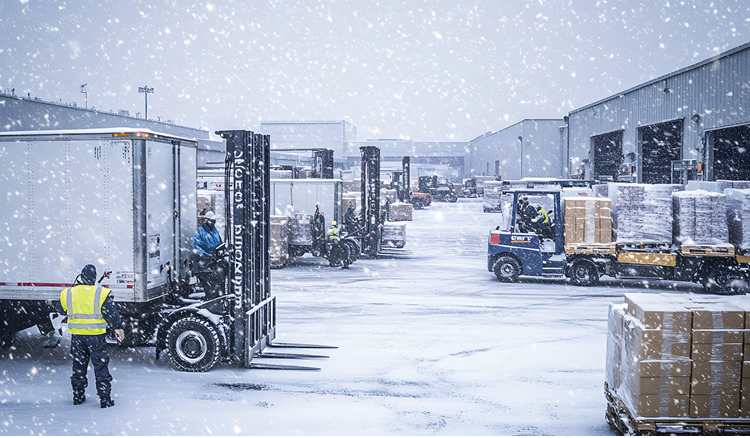January Automotive Industry Updates
Welcome to our January 2024 automotive industry update where we review some of the key developments in the automotive industry.
Automotive Launch Delay
PwC's analysis shows potential costs of up to $200 million for OEMs and $15 million for suppliers due to vehicle launch delays. The analysis suggested a slight slowdown in 2023 delays, but forecasts a nearly twofold increase in planned launches by 2026. Persistent issues like supply chain disruptions, quality challenges, and workforce constraints are identified as primary causes. PwC notes an average cost of $200 million for a 12-month launch delay. In 2023, 34% of vehicle launches experienced delays, up from 5% in 2018. The forecast anticipates 20 to 40 delayed launches per year until 2026, with Electric Vehicle launches contributing to increased delays.
Cox 2024 Automotive Outlook
Cox Automotive's 2024 outlook predicts sluggish economic growth, but sure beats a recession. High interest rates and decreasing inflation may impact consumer spending and job growth. The labor market is expected to weaken yet support a strong auto industry with robust production. Consumer debt is anticipated to grow slowly, and credit conditions will likely remain stable though tight. While consumer spending may slow, it should still support modest growth. Overall, the forecast suggests a potentially uneventful economic year, but much preferable to the turmoil of a recession.
Cummins
Cummins recently revealed its intention to invest $580 million in a North Carolina engine plant in Rocky Mount. This substantial investment will include the installation of new manufacturing equipment and enhancements to the assembly line for upcoming product generations. The manager of Cummins' Rocky Mount Engine Plant expressed excitement about fostering ongoing growth in Nash County and generating jobs that depend on cutting-edge technology for the future.
Labor Shortage Concern
The issue of labor shortages continues to be a worry, as indicated by KPMG's recent release of its annual global automotive executive survey. CEOs expressed their concern about the potential adverse impact on their businesses, with 47% either "extremely concerned" or "very concerned."
This is exactly why CEOs across the country have begun to explore the innovative approach of the Veryable Platform. Notably, the automotive sector is Veryable's fastest-growing segment, designed to address gaps between demand and labor. For further insights into Veryable's concept, explore case studies, customer testimonials, and automotive blogs on our Automotive Industry page.
EVs -- Supply chains could be impacted by China’s decision to halt exports of certain technologies required to produce rare-earth metals and magnets. Additionally, analysis from The Wall Street Journal predicts that lower prices for Electric Vehicle (EV) battery metals, including lithium carbonate, cobalt, and nickel, are anticipated to continue into 2024.
Alabama and the UAW
The United Auto Workers (UAW) union intends to unionize Alabama's Mercedes-Benz plant, with 30% of workers already signing union authorization cards. This 30% threshold is crucial as it expands unionization efforts. If over 50% sign, the UAW aims to involve federal regulators from the National Labor Relations Board. Alabama Governor Kay Ivey responded by urging workers to reject the UAW, emphasizing the importance of the auto industry to the state's prosperity. Ivey highlighted Alabama's status as a top automotive manufacturing state with five major Original Equipment Manufacturers (OEMs) and nearly 50,000 workers driving the sector's success. She emphasized the state's impressive vehicle production capacity, exports, and rankings in the automotive industry.
U.S. Sales
Several major automakers reported higher U.S. sales volumes for the full year of 2023 compared to the challenging year of 2022, which marked the industry's lowest sales volumes in over a decade. In 2023 Toyota achieved a 6.6% year-over-year increase, selling 2.25 million units. Ford saw a 7% year-over-year rise, selling 1.99 million units. Hyundai Motor, along with its Kia and Genesis brands, collectively sold 1.65 million units, marking a 12 year-over-year increase and surpassing its previous U.S. record set in 2021. American Honda reported sales exceeding 1.3 million units, reflecting a significant 33% year-over-year growth. Lastly, Stellantis sold 1.52 million units, experiencing a slight decrease of 1% year-over-year. However, its Plug-in Hybrid Electric Vehicle (PHEV) sales increased by an impressive 124% year-over-year.
Battery Park Work Resumes
A Calhoun County circuit judge dismissed more challenges to Ford Motor Co.'s BlueOval Battery Park in south-central Michigan's Marshall this month. Now with the lawsuit over, they're moving forward with the project as planned. This will help Marshall recover from years of job and population losses, pump millions of dollars into the local economy and create opportunities for young people so they don’t have to leave the area to find jobs. The plant is expected to create 1,700 jobs.
Learn More:
Previous Posts
Navigating the Aftermath: How On-Demand Labor Accelerates Winter Storm Recovery
The Future of Manufacturing and Logistics
Create a free business profile today to explore our platform.






